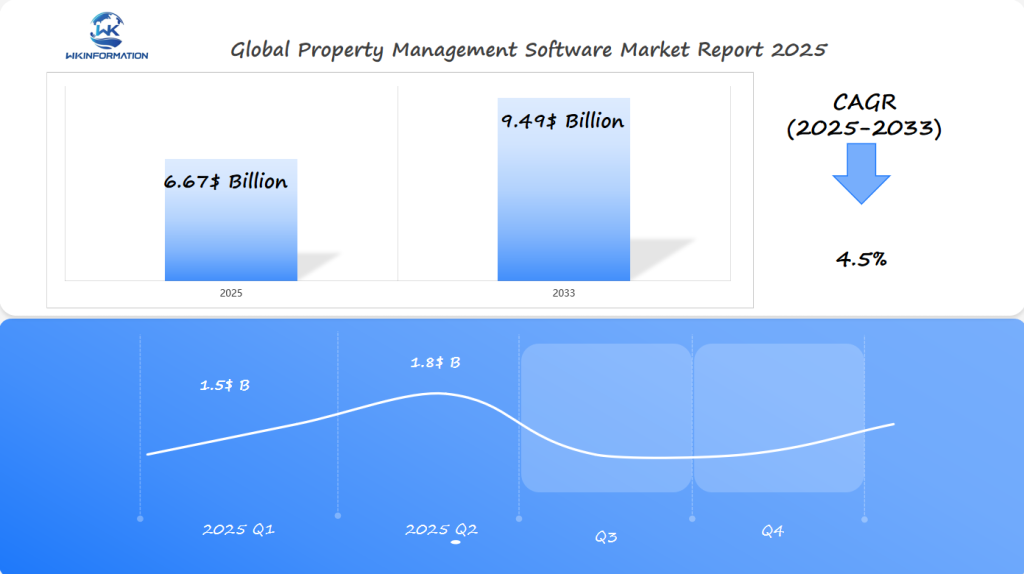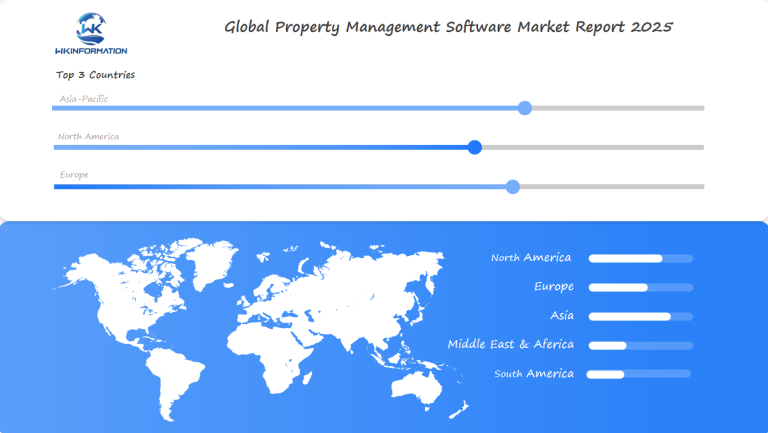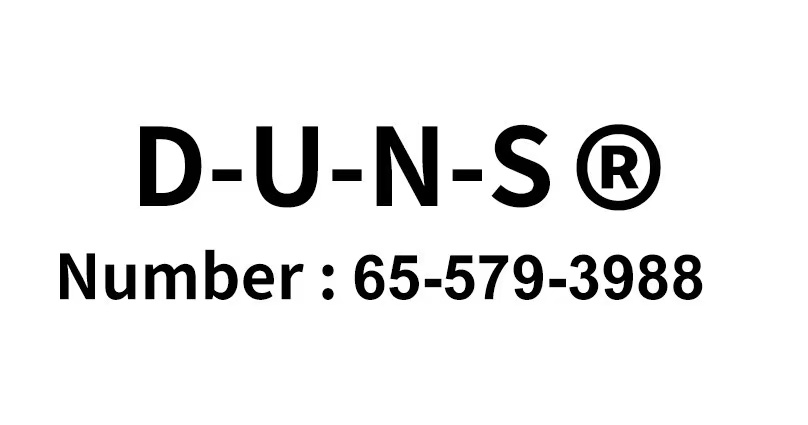2025 Property Management Software Market Revolution: Unlocking a $6.67 Billion Opportunity with Digital Transformation in USA, UK, and Australia
Comprehensive analysis of Property Management Software Market trends, focusing on digital transformation in USA, UK, and Australia through 2025. Explores impact of COVID-19, regional market dynamics, and emerging technologies shaping property management’s future.
- Last Updated:
Property Management Software Market Forecast for Q1 and Q2 2025
The Property Management Software market is expected to reach approximately USD 6.67 billion in 2025, with strong growth anticipated throughout the year. In Q1 2025, the market is projected to generate around USD 1.5 billion, driven by continued adoption in the USA, UK, and Australia—three countries where the demand for streamlined property management solutions is particularly high. This early growth is largely attributed to the ongoing digital transformation of the real estate sector, which is pushing property managers to adopt more efficient, cloud-based software systems. By Q2 2025, the market is expected to rise to around USD 1.8 billion, fueled by increased uptake of advanced features such as AI-driven automation, predictive analytics, and enhanced tenant engagement tools.
The USA, UK, and Australia are poised to remain the dominant markets due to their strong real estate sectors and high levels of technological integration. With a projected CAGR of 4.5% from 2025 to 2033, the market is set for consistent growth, with these regions leading the way in innovation and adoption. For a deeper dive into the market trends, technological advancements, and competitive landscape, read the Wkinformation Research sample and full report.

Understanding the Factors Influencing Property Management Software
The property management software industry is shaped by various factors, including urbanization and the increasing demand for housing.
Upstream Dynamics: The Impact of Urbanization
Urbanization is more than just a passing trend; it’s a global phenomenon that requires more residential spaces, commercial buildings, and mixed-use developments. As cities expand, there is a greater need for advanced property management solutions to effectively handle the complexities of real estate operations.
- Pressure on Property Managers: With the growth of cities, property managers face mounting pressure to embrace innovative tools that can streamline their processes and ensure smooth resource management.
- Sophisticated Solutions Required: The evolving landscape of urban areas demands sophisticated property management solutions capable of addressing the intricacies involved in managing diverse types of properties.
Downstream Effects: Benefits of Property Management Software
While understanding the upstream factors is essential, it is equally important to grasp the downstream impacts as well. The adoption of property management software brings significant advantages in terms of operational efficiency and tenant satisfaction.
Key downstream benefits include:
- Enhanced Efficiency: Automation of routine tasks such as rent collection, lease renewals, and maintenance requests reduces manual errors and saves time.
- Improved Tenant Satisfaction: Tenants benefit from quicker response times and more reliable services. Features like online portals and mobile apps provide tenants with easy access to their accounts and building amenities.
- Data-Driven Decisions: Software integration offers comprehensive data analytics capabilities, enabling property managers to make informed decisions based on real-time insights.
Bridging the Gap with Software Integration
Software integration serves as a link between these upstream drivers and downstream advantages by aligning modern technological capabilities with the increasing demands of urban populations. Through the use of digital tools, property management firms can effectively handle larger workloads while upholding high service standards for tenants.
These factors underscore the significance of embracing digital transformation in property management. It’s not merely about keeping up with trends but rather adapting to a changing world where technology plays a pivotal role in improving both operational performance and tenant experiences.
The challenge lies in seamlessly implementing these technologies to fully unlock their potential benefits across various aspects of property management.
Top Trends Reshaping the Property Management Software Industry
The property management software industry is undergoing a transformation driven by several key technology trends. Central to this evolution is the rise of cloud-based solutions and mobile applications, which have become essential tools for property managers.
1. Cloud-Based Solutions
Cloud-based platforms offer flexibility, allowing users to access information from anywhere, at any time, without the need for extensive IT infrastructure.
2. Mobile Applications
Mobile applications complement this by providing on-the-go management capabilities, enabling instant communication and task execution.
3. Automation
Automation stands as another pivotal trend reshaping the industry. By automating routine tasks such as rent collection, lease renewals, and maintenance scheduling, property management software reduces manual errors and frees up valuable time for managers. This streamlining of operations not only enhances efficiency but also leads to significant cost savings. Automated processes ensure accuracy and consistency, crucial in maintaining high standards across various properties.
4. AI-Powered Enhancements
Enhancing user experience through innovative features is also at the forefront of industry advancements. AI-powered chatbots are revolutionizing tenant communication by providing 24/7 support for queries related to leasing or maintenance issues. These chatbots can handle multiple interactions simultaneously, ensuring prompt responses and improving tenant satisfaction levels. Moreover, they learn from interactions over time, becoming more adept at addressing tenant needs with each use.
Through these trends—cloud-based solutions, mobile applications, automation, and AI-driven enhancements—the property management software market is poised for substantial growth and innovation. These developments not only streamline operations but also elevate tenant experiences, positioning property management firms to better meet evolving consumer demands in a competitive real estate landscape.
Overcoming Restrictions and Challenges in Property Management Software Adoption
The adoption of property management software is not without its challenges.
1. Resistance to Change
Resistance to change is a significant barrier, often stemming from employees who are accustomed to traditional methods. This reluctance can be mitigated through comprehensive training programs that emphasize the benefits of new systems and demonstrate how they enhance daily operations.
2. Lack of Proper Training
Another hurdle is the lack of proper training, which can lead to underutilization of software capabilities. Investing in continuous education on software functionalities ensures that all team members can leverage the full potential of these digital tools, ultimately leading to improved efficiency and productivity.
3. Regulatory Restrictions
Regulatory restrictions present another layer of complexity in this market. Regions with stringent data protection laws require that property management software complies with legal standards, such as GDPR in Europe or CCPA in California. Ensuring compliance necessitates a thorough understanding of local regulations and often requires collaboration with legal experts to adapt software systems accordingly.
4. Market Entry Barriers
Market entry barriers add to these challenges, particularly for new entrants aiming to establish themselves in established markets like North America or Europe. These barriers may include high initial costs, competition from well-established players, and the need for tailored solutions that meet specific regional needs.
To address these issues, property management firms must adopt a proactive approach by engaging stakeholders early in the implementation process, ensuring regulatory compliance from the outset, and investing in user-friendly interfaces that facilitate easy adoption by all employees. By tackling these barriers head-on, firms can position themselves for success in a rapidly evolving industry landscape.

The Impact of Geopolitical Factors on Property Management Software Solutions Across Regions
Geopolitical factors play a crucial role in shaping the property management software market across different regions. Market influence is heavily affected by the stability or instability within a region, as it directly impacts investment levels. In high-risk areas, where political uncertainty prevails, there’s often a noticeable reluctance to prioritize investments in property management software. This hesitation stems from concerns over potential economic volatility and the fear of rapid regulatory changes that could disrupt technological implementations.
Regional variances in software adoption rates are also evident when examining the differing political climates and the extent of government support for digital initiatives. In regions with robust governmental backing for digital transformation, property management firms tend to adopt advanced software solutions more readily. These supportive environments often foster innovation and create favorable conditions for technology integration.
Conversely, in areas where governments exhibit skepticism towards digital initiatives or where political climates are less stable, adoption rates can lag behind. This disparity is not solely due to a lack of interest but is often a reflection of broader socio-political challenges that hinder technological progress.
Several examples illustrate these dynamics:
- North America: With its stable geopolitical climate and strong governmental support for technology, North America consistently leads in property management software adoption. Policies promoting digital innovation provide fertile ground for growth and development.
- Asia-Pacific: While experiencing rapid growth, this region faces varying degrees of governmental support. Countries like Singapore and South Korea advance swiftly due to supportive policies, whereas others may face slower adoption rates due to less favorable political conditions.
- Middle East and Africa: Political instability in certain areas can deter investment in property management technologies. However, regions with stable governance are beginning to see gradual increases in software adoption as they embrace digital transformation.
Understanding the interplay between geopolitical factors and market dynamics is crucial for stakeholders seeking to navigate these complex environments effectively.
Market Segmentation: Understanding the Different Types of Property Management Software Available Today
In the world of property management software, market segmentation is crucial in creating solutions that cater to different needs. There are many specialized tools available that aim to make operations smoother for property managers.
Categories Within the Market
1. Tenant Management Systems
These systems are focused on enhancing tenant relations and streamlining processes such as lease management and tenant communication. By automating routine tasks such as rent collection and lease renewals, these solutions significantly improve efficiency.
2. Accounting Solutions
Essential for maintaining financial accuracy, accounting software within this sector enables property managers to handle complex financial transactions with ease. These tools typically offer features like budget tracking, expense management, and financial reporting.
3. Maintenance Tracking Tools
Maintenance is a crucial aspect of property management. Software designed for this purpose allows managers to schedule regular maintenance tasks, track repairs, and manage vendor information. This ensures properties remain in top condition while reducing downtime.
4. Facility Management Software
Focused on optimizing the use of physical spaces, these solutions assist in managing shared resources and facilities within properties. They often include features like space utilization analytics and resource scheduling.
Deployment Modes
Understanding deployment options is critical when selecting the right software type:
- Cloud-Based Solutions: Cloud-based platforms offer flexibility and scalability, allowing users to access data from any location with an internet connection. This is particularly beneficial for multi-location property management firms seeking real-time updates and collaboration capabilities.
- On-Premises Systems: For organizations prioritizing data control and security, on-premises solutions provide a viable alternative. These systems require more significant upfront investment in hardware and maintenance but offer unparalleled customization possibilities.
These various categories and deployment modes showcase the wide range of property management software available, each designed to address specific operational needs while improving overall efficiency.
How Property Management Software is Enhancing Real Estate Applications Beyond Traditional Boundaries
Property management software is changing the game for real estate applications by going beyond its usual functions. This change is mainly driven by the need to improve operational efficiency and make tenants happier.
Operational Efficiency Improvement
1. Automated Lease Renewals
By automating lease renewals, property management software eliminates manual paperwork, reducing administrative workload and minimizing errors. This streamlined process ensures timely renewals and enhances overall property management efficiency.
2. Online Rent Collection Portals
These portals offer tenants a convenient and secure way to pay their rent online. This not only simplifies the payment process but also improves cash flow for property managers by reducing delays associated with traditional collection methods.
Enhancing Tenant Engagement
1. Access to Building Amenities
Innovative features in property management software provide tenants with easy access to building amenities. Whether booking a gym session or reserving a shared space, these tools enhance tenant satisfaction by offering seamless interaction with available facilities.
2. Community Events Integration
Software solutions enable tenants to engage more actively in community events through integrated platforms that keep them informed and involved. This fosters a sense of community, contributing to higher tenant retention rates.
Incorporating these advanced features positions property management software as a pivotal tool in driving the real estate sector towards digital transformation. By focusing on enhancing both efficiency and tenant engagement, these solutions are setting new standards in the Property Management Software Market.
The evolution of these applications continues as developers integrate new technologies and respond to emerging trends, ensuring that real estate companies remain competitive and relevant in today’s dynamic market landscape.
Global Insights into the Property Management Software Market: Regional Growth Patterns Unveiled
The property management software market is experiencing significant transformations across various regions, contributing to its dynamic growth trajectory. Asia-Pacific emerges as the fastest-growing segment, fueled by rapid urbanization and increasing investments in smart city projects. The region’s burgeoning middle class and technological advancements serve as key catalysts for the adoption of property management solutions.
In contrast, North America maintains its position as the largest market. This dominance is attributed to robust digital infrastructure, high adoption rates of advanced technologies, and a mature real estate sector well-versed in leveraging software solutions to optimize operations.
- Europe showcases a steady growth pattern driven by regulatory compliance requirements and the integration of sustainable practices within property management systems.
- Latin America and Middle East & Africa present unique opportunities with growing interest in digital transformation. These regions are witnessing an increased focus on enhancing tenant experiences and operational efficiencies through innovative software applications.
The global market insights analysis indicates that each region offers distinct opportunities and challenges, shaped by local economic conditions and technological readiness. Understanding these regional nuances is crucial for stakeholders aiming to capitalize on the expansive potential of the property management software market.

USA’s Dominance in Property Management Software Innovation
The United States is leading the way in property management software innovation, thanks to its thriving tech ecosystem and strong real estate industry. This dominance can be attributed to several key factors:
1. Cutting-edge Technology
The U.S. is home to many top tech companies and startups that are constantly coming up with new ideas for property management solutions. These organizations use advanced technologies like artificial intelligence (AI), machine learning, and the Internet of Things (IoT) to build platforms that are more efficient and user-friendly.
2. Investment and Capital
There is a significant presence of venture capital in the U.S., which supports extensive research and development activities in the property management sector. This financial support allows companies to try out new technologies and expand their reach in the market.
3. Diverse Market Needs
The U.S. real estate market is diverse, with various types of properties such as urban high-rises and suburban developments. This diversity creates a demand for versatile software solutions, driving innovation to cater to the specific needs of different property types.
4. Regulatory Environment
While compliance regulations can be strict, they also encourage companies to come up with innovative solutions to effectively navigate these complexities.
The combination of technology, investment, and market demand positions the USA as a leader in property management software innovation, setting standards for practices worldwide.
The UK’s Role in Advancing Property Management Technologies
The United Kingdom is playing a crucial role in advancing property management technologies. With its rich history in real estate innovation, the UK continues to lead through groundbreaking developments and strategic investments. This region is embracing smart technologies that enhance operational efficiencies and tenant experiences.
1. Key Initiatives
Government-backed programs and private sector investments are propelling the adoption of smart building technologies. These initiatives focus on integrating IoT devices for energy management, security enhancements, and predictive maintenance.
2. Emerging Trends
The UK market is witnessing a surge in demand for AI-driven analytics tools. These tools empower property managers with insights into tenant behaviors, enabling more personalized service offerings.
3. Regulatory Support
Favorable regulatory environments are encouraging digital transformation. Data protection laws, while stringent, ensure secure and reliable platforms for both tenants and property managers.
4. Collaborative Ecosystem
Collaborations between tech startups and established real estate firms are fostering an environment ripe for innovation. This synergy is leading to the development of platforms that streamline processes such as lease management, tenant communication, and maintenance scheduling.
The UK’s commitment to technological advancement in property management not only elevates its market standing but also sets a benchmark for other regions aiming to harness digital solutions in real estate.
The Growing Need for Property Management Software in Australia
Australia’s property management industry is experiencing a significant increase in demand for advanced software solutions. This growth can be attributed to several factors that are reshaping the way real estate is managed across the country.
1. Urban Growth and Real Estate Expansion
Australia’s cities are rapidly developing, leading to more residential and commercial properties being built. This growth requires efficient management systems to handle the complexities of managing different types of properties.
2. Embracing Technology
As Australians embrace digital transformation, property managers are increasingly turning to technology to streamline operations. Cloud-based solutions and mobile applications are becoming integral components of property management, offering flexibility and scalability.
3. Prioritizing Tenant Experience
Improving tenant satisfaction has become a top priority, driving the demand for software that enables smooth communication, online rent payments, and maintenance requests. Features like AI-driven chatbots and personalized tenant portals are gaining popularity.
4. Meeting Regulatory Requirements
Stricter regulations regarding data protection and privacy have prompted property management companies to implement strong software systems that ensure compliance with local laws and standards.
The Australian market is known for its willingness to embrace innovation, which creates opportunities for software providers looking to take advantage of this upward trend. With a strong focus on digital solutions, Australia is set to transform its property management practices.
Future Developments and Innovations in Property Management Software
The world of property management software is about to undergo significant changes thanks to advanced technologies. Here are some key developments we can expect:
Integration of Artificial Intelligence (AI)
One of the most eagerly awaited advancements is the use of Artificial Intelligence (AI) for predictive analytics. This feature will help property managers make better decisions by predicting market trends and tenant behaviors.
Expansion of Internet of Things (IoT) in Smart Buildings
Another important innovation is the growth of IoT (Internet of Things) in smart buildings. By connecting various devices and systems, IoT can automate maintenance tasks, optimize energy usage, and enhance security measures.
Emergence of Blockchain Technology
Blockchain technology is also making waves as a solution for secure transactions and transparent record-keeping. Its application in property management ensures tamper-proof records for lease agreements and financial transactions.
Redefining Tenant Engagement with Virtual Reality (VR)
Additionally, virtual reality (VR) has the potential to transform tenant engagement by offering immersive virtual tours. Prospective tenants will be able to explore properties remotely, saving time and resources while increasing accessibility.
These innovations mark a new era where property management software goes beyond traditional limits, promising improved efficiency, security, and user experience for all involved parties. As these technologies continue to develop, they will undoubtedly shape the future of real estate management worldwide.
Key Competitors Driving Innovation in the Property Management Software Industry
Key Players:
- RealPage
- Yardi Systems Inc.
- Entrata
- CoreLogic Inc.
- Zillow Group Inc.
- Buildium
- AppFolio
- Apartments.com
- ResMan
- IBM
Overall
| Report Metric | Details |
|---|---|
| Report Name | Global Property Management Software Market Report |
| Base Year | 2024 |
| Segment by Type |
· On-Premise · Cloud-Based |
| Segment by Application |
· Household · Hospitality and Vacation Rental · Commercial · Industrial |
| Geographies Covered |
· North America (United States, Canada) · Europe (Germany, France, UK, Italy, Russia) · Asia-Pacific (China, Japan, South Korea, Taiwan) · Southeast Asia (India) · Latin America (Mexico, Brazil) |
| Forecast units | USD million in value |
| Report coverage | Revenue and volume forecast, company share, competitive landscape, growth factors and trends |
The property management software market is about to undergo a significant change, with estimates suggesting its value will rise to $6.67 billion by 2025. This growth highlights the importance of digital transformation in reshaping real estate management.
Investments are flooding into this sector due to urbanization trends and a growing need for efficient housing solutions. The industry is experiencing a surge in technological advancements, particularly in cloud-based systems and AI-driven features that improve operational efficiency and tenant satisfaction.
Key regions such as the USA, UK, and Australia are leading the way in innovation and adoption, each contributing uniquely to market dynamics. On the other hand, geopolitical factors present challenges that affect adoption rates in different regions.
Strategic mergers and acquisitions among major players like IBM Corporation and SAP SE are shaping the competitive landscape. These strategic moves aim to enhance service offerings and expand market reach, providing property management firms with powerful tools to meet evolving consumer demands.
Understanding deployment modes—cloud vs. on-premises—and exploring various categories within property management software are essential for stakeholders looking to seize this growing opportunity. As digital transformation continues to redefine boundaries, property management software is set to become a fundamental part of modern real estate applications worldwide.
Global Property Management Software Market Report (Can Read by Free sample) – Table of Contents
Chapter 1: Property Management Software Market Analysis Overview
- Competitive Forces Analysis (Porter’s Five Forces)
- Strategic Growth Assessment (Ansoff Matrix)
- Industry Value Chain Insights
- Regional Trends and Key Market Drivers
- Property Management SoftwareMarket Segmentation Overview
Chapter 2: Competitive Landscape
- Global Property Management Softwareplayers and Regional Insights
- Key Players and Market Share Analysis
- Sales Trends of Leading Companies
- Year-on-Year Performance Insights
- Competitive Strategies and Market Positioning
- Key Differentiators and Strategic Moves
Chapter 3: Property Management Software Market Segmentation Analysis
- Key Data and Visual Insights
- Trends, Growth Rates, and Drivers
- Segment Dynamics and Insights
- Detailed Market Analysis by Segment
Chapter 4: Regional Market Performance
- Consumer Trends by Region
- Historical Data and Growth Forecasts
- Regional Growth Factors
- Economic, Demographic, and Technological Impacts
- Challenges and Opportunities in Key Regions
- Regional Trends and Market Shifts
- Key Cities and High-Demand Areas
Chapter 5: Property Management Software Emerging and Untapped Markets
- Growth Potential in Secondary Regions
- Trends, Challenges, and Opportunities
Chapter 6: Product and Application Segmentation
- Product Types and Innovation Trends
- Application-Based Market Insights
Chapter 7: Property Management Software Consumer Insights
- Demographics and Buying Behaviors
- Target Audience Profiles
Chapter 8: Key Findings and Recommendations
- Summary ofProperty Management SoftwareMarket Insights
- Actionable Recommendations for Stakeholders

Access the study in MULTIPLEFORMATS
Didn’t find what you’re looking for?
TALK TO OUR ANALYST TEAM
Need something within your budget?
NO WORRIES! WE GOT YOU COVERED!
Call us on: +1-866-739-3133
Email: infor@wkinformation.com
What is the projected growth of the Property Management Software Market?
The Property Management Software Market is projected to grow to $6.67 billion by 2025, driven by digital transformation in real estate management.
What are the key drivers behind the demand for property management software?
Key drivers include urbanization and increasing housing demand, which create a need for advanced property management solutions.
How does software integration impact property management efficiency?
Software integration enhances property management efficiency by bridging upstream dynamics like demand for housing with downstream impacts such as tenant satisfaction levels.
What technological trends are reshaping the Property Management Software industry?
Key trends include the rise of cloud-based solutions, mobile applications, automation to streamline operations, and innovative features like AI-powered chatbots for improved user experience.
What challenges do firms face when adopting new property management software?
Common challenges include resistance to change from employees, lack of training, regulatory hurdles, and compliance issues particularly in regions with strict data protection laws.
How do geopolitical factors influence the adoption of property management software across different regions?
Geopolitical stability affects investment levels in various markets. High-risk areas may prioritize other concerns over software adoption due to uncertainty, leading to regional disparities in adoption rates.


